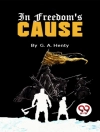Theodore Dreiser’s ‘The Genius’ delves into the tumultuous life of a struggling artist, revealing the intricate interplay between creativity and self-destruction. Set against the backdrop of late 19th and early 20th century America, the novel adopts a naturalistic style that mirrors Dreiser’s larger body of work. Through its vivid prose and psychological depth, it explores themes of ambition, altruism, and the darker facets of the human psyche. The protagonist’s journey illustrates the existential conflict between societal expectations and personal desires, encapsulating the zeitgeist of an era hungry for artistic expression yet riddled with moral ambiguity. Dreiser, a pioneering figure in American literature, was deeply influenced by his experiences in the gritty industrial landscapes of Chicago and New York, as well as his encounters with the art world. His own struggles with societal norms and perceptions of success filter through the pages of ‘The Genius, ‘ offering readers an intimate glimpse into the mind of an artist grappling with the constraints of fame and artistic integrity. Drawing from autobiographical elements, Dreiser presents a narrative that is both deeply personal and broadly resonant. ‘The Genius’ is essential reading for those interested in understanding the complexities of artistic ambition and the sacrifices entailed in the pursuit of greatness. Dreiser’s incisive exploration of the artist’s psyche will resonate with anyone who has ever felt the burden of their creative aspirations. This novel not only enriches American literary canon but also invites profound reflection on the nature of genius itself.
Про автора
Theodore Dreiser (1871-1945) was a distinguished American novelist and journalist, who pioneered the naturalist school in American literature. Born in Terre Haute, Indiana, to a family of German origin, Dreiser faced a tumultuous upbringing amidst poverty which deeply influenced his writing (Pizer, 2005). His narrative often explores the gritty aspects of life, with characters frequently facing moral dilemmas and societal pressures. Dreiser’s work is characterized by his incisive exploration of the American Dream and the illusion of social mobility. Among his most notable works is the novel ‘Sister Carrie’ (1900), which heralded his arrival as a significant literary figure known for his candid portrayal of urban life and the downfalls of ordinary people. However, it is his novel ‘The ‘Genius” (1915) that encapsulates Dreiser’s complex understanding of human nature, art, and the relentless pursuit of personal fulfillment within the confines of social convention. The novel’s protagonist, Eugene Witla, battles with his own creativity and desires against the backdrop of early 20th-century America, mirroring Dreiser’s own professional struggles within the literary establishment. A controversial figure, Dreiser’s unabashed depiction of sexuality and criticism of social structures often led to censorship and public outcry (‘Theodore Dreiser, ‘, 2021). Despite the controversies, Dreiser’s literary contributions earned him a place in the pantheon of American literature, capturing the complexity and contradictions of American society in transition. His body of work continues to inspire scholars and readers alike, dissecting the human experience with an unflinching realism that remains poignant today.












